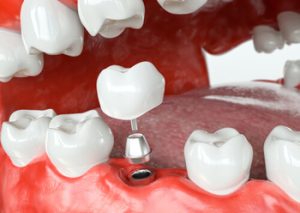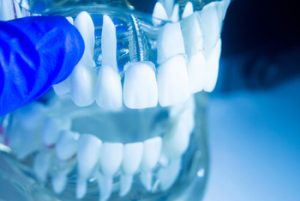When it comes to dental implant treatments, many Australians are lured by the promise of low-cost procedures in exotic locations like Bangkok, Thailand. But as the saying goes, you get what you pay for. While Bangkok clinics may offer tempting deals, there’s more to consider than the initial price tag. In this article, we’ll delve into the real costs, the hidden factors, and why choosing to have your dental implants in Australia could ultimately be the better decision. Let’s break down the considerations, from dental implant prices to the long-term benefits of staying local, especially for those with missing teeth.
What Are Dental Implants?
Dental implants are a popular solution for replacing missing teeth because they resemble the look, feel, and function of natural teeth. Unlike traditional dentures or bridges, implants do not depend on adjacent teeth for support, which helps to maintain the integrity of the surrounding teeth and bone. Additionally, because the implant post acts as a root, it stimulates the jawbone, preventing bone loss and maintaining facial structure. Dental implants are considered a long-term solution for restoring a patient’s smile and improving oral health, offering both aesthetic and functional benefits. Immediate-function implants provide a rapid solution for patients, allowing them to receive fixed teeth during the same surgical visit, which is both efficient and effective.
The Initial Temptation: Why Bangkok?
Dental tourism for dental implants has become increasingly popular as individuals seek cost-effective solutions abroad. However, while saving money might be appealing, it’s important to consider the complexities involved. Dental implant posts require precise placement and often necessitate multiple appointments for optimal results. When seeking treatment in a foreign country, the continuity of care can be compromised, and patients may face challenges in addressing post-operative issues or complications. The distance and lack of immediate access to the treating dentist can make follow-up care difficult, potentially leading to long-term problems that outweigh the initial savings.
The Australian Advantage: Why Staying Local Pays Off
The differences between Australia and Bangkok are stark when weighing your options for dental treatments, especially dental implants. While Bangkok might catch your eye with its lower costs, Australia stands out for its unwavering commitment to excellence in dental care. Investing in treatment within Australia’s borders means prioritising quality, safety, and long-term success.
Quality of Materials and Brands
Not all dental implants are manufactured equally, and the choice of dental implant brand can significantly impact the quality and success of the treatment. The materials used and the dental implant brands available in Bangkok may differ from those commonly used in Australia. Premium brands known for their rigorous testing and high success rates are more commonly found in Australian clinics. While some Bangkok clinics may offer similar brands, there is a chance that the lower cost could mean a compromise in quality.
Expertise and Experience of Dental Professionals
In Australia, dental implant treatments are typically performed by highly trained dentists who have undergone years of education and have extensive experience in implant dentistry. These qualified professionals must adhere to strict regulations and standards set by Australian dental boards. In contrast, while many dental clinics in Bangkok also boast experienced professionals, the standards and regulations may vary. This discrepancy could impact the outcome of your dental treatment, particularly in complex cases such as severe bone loss.
Consistency and Continuity of Care
One of the essential factors in ensuring the success of dental implant treatment is aftercare. Dental implants require diligent follow-up care to ensure the implant post integrates well with the jaw bone and that the surrounding tissues heal properly. In Australia, your local dentist will typically schedule frequent dental check-ups to monitor the progress of your implant. In contrast, if you opt for dental implants in Bangkok, the geographical distance makes routine follow-ups challenging, if not impossible. Should complications arise, such as significant posterior bone loss or issues with implant placement, returning to Bangkok for corrective procedures may not be practical, adding to your overall dental implant costs.
Comprehensive Treatment Plans Tailored to Your Needs
In Australia, dental clinics often take a holistic approach to dental care, offering comprehensive treatment plans that address all aspects of your oral health. This includes assessing the condition of your jaw bone, evaluating the need for bone grafting or other preparatory procedures, and customising the treatment plan to suit your unique needs. This level of personalised care is a significant advantage over the more generic treatment approaches that might be offered in high-volume dental clinics abroad.
Beyond the Price Tag: The Hidden Dental Implant Costs in Bangkok
When considering dental implants in Bangkok, it’s easy to be drawn in by the lower prices advertised by many clinics. However, these upfront savings can be deceptive when you factor in the additional expenses and potential risks involved. Beyond the price tag, hidden costs can significantly impact your treatment’s overall value and success.
Variability in Quality of Care:
One of the main concerns about getting dental implants abroad is the variability in the quality of care. Dental clinics in some countries may not adhere to the same rigorous standards and regulations found in Australia. This can lead to differences in the quality of materials used, the expertise of dental professionals, and the procedures’ overall safety. In some cases, clinics might use lower-grade dental implant posts or outdated techniques to keep costs low, which can compromise the long-term success of the implants.
Communication Barriers:
Effective communication is critical during any dental procedure, especially when discussing complex treatments like dental implants. Language barriers in a foreign country can lead to misunderstandings about the procedure, potential risks, and post-operative care instructions. Miscommunication can increase the risk of complications or result in a treatment outcome that doesn’t meet your expectations. Additionally, the nuances of explaining discomfort, pain, or concerns might not be effectively conveyed, leading to inadequate responses from the dental team.
Limited Recourse for Medical Negligence:
In the unfortunate event of medical negligence or a poorly performed procedure, pursuing legal recourse in a foreign country can be challenging. Different legal systems, unfamiliarity with local laws, and the possibility of lengthy and costly legal battles may deter patients from seeking compensation or corrective measures. This leaves patients at risk of bearing the full financial and emotional burden of any complications that arise from substandard care. Additionally, the process of seeking redress might be complicated by jurisdictional issues and the enforcement of any legal decisions across international borders.
Inconsistent Post-Operative Care:
Post-operative care is pivotal to the success of dental implants, as it involves monitoring the healing process and ensuring that the implant integrates properly with the jaw bone. When getting dental implants abroad, the continuity of post-operative care is often disrupted due to the distance between the patient and the treating clinic. This inconsistency can lead to undetected issues, such as infections or implant failures, which may require urgent attention. Without easy access to the original dental team, patients might have to rely on local dentists who may not be familiar with the specific implant system used, leading to additional complications and costs.
Increased Risk of Infection:
The risk of infection is a major concern with any surgical procedure, and dental implants are no exception. Receiving treatment abroad in a different environment exposes patients to unfamiliar bacteria and pathogens, which their immune systems might not be accustomed to. If infection occurs, it can complicate the healing process, potentially leading to implant failure or the need for additional surgical interventions. Treating these infections back home can be costly, especially if immediate care is required.
Potential for Suboptimal Aesthetic Results:
Aesthetic considerations are a significant part of dental implant procedures, as they directly impact the appearance of your smile. Dentists in Australia are often trained to a high standard in cosmetic dentistry, ensuring that the final outcome looks natural and meets the patient’s expectations. However, when seeking treatment abroad, there is a risk that the aesthetic results may not meet the same standard. This could be due to differences in dental practices, materials used, or a lack of detailed communication about the desired outcome, leading to dissatisfaction and the need for corrective treatments.
Complications with Complex Cases:
Patients with complex dental needs, such as severe bone loss or the requirement for advanced procedures, may face additional risks when getting dental implants abroad. These cases require a high level of expertise and often involve multiple stages of treatment. The limited availability of specific care or the rush to complete procedures within a short timeframe can result in suboptimal outcomes. In some instances, patients may need to undergo corrective surgeries, which can be both costly and challenging to coordinate from afar.
Step-by-Step Guide to Getting Dental Implants
Getting dental implants is a multi-step process that requires careful planning and precision to ensure long-lasting results. From the first consultation to the final placement of the permanent crown, each stage is crucial in achieving a successful outcome. Understanding these steps can help you prepare for the procedure and set realistic expectations for the timeline and results. Below is a detailed guide to the key stages involved in getting dental implants.
Initial Consultation and Evaluation:
Your dentist performs a comprehensive examination, which may include X-rays and 3D imaging, to evaluate the condition of your jawbone and overall oral condition. Based on these findings, a personalised treatment plan is created, including the number of implants needed and determining if any additional procedures, such as bone grafting, are required.
Preparation and Bone Grafting (if needed):
If your jawbone lacks the necessary density or volume, a bone grafting may be performed to build up the bone. This ensures a stable foundation for the implant.
After grafting, a healing period of several months is usually required before implant placement.
Implant Placement:
The dental implant post is surgically fixed into the jawbone, usually under local anaesthesia.
The implant post is positioned in the bone, where it will serve as the root for the replacement tooth.
Healing and Osseointegration:
In the following months, the implant post gradually bonds with the jawbone through a process known as osseointegration, establishing a robust and secure foundation for the replacement tooth. To preserve the appearance of your smile during this period, a temporary crown or bridge may be fitted.
Abutment Placement:
Once the implant has fully blended with the bone, an abutment (a connector piece) is attached to the implant post. This abutment will hold the final replacement tooth.
The gums are allowed to heal around the abutment, which may take a couple of weeks.
Placement of the Permanent Crown:
After the gums have healed, a customised crown, bridge, or denture is fixed to the abutment. This prosthetic tooth is designed to match your natural teeth in colour, shape, and size.
The final adjustment ensures a comfortable and functional bite.
Follow-Up and Maintenance:
Your dentist will schedule routine follow-up visits to keep an eye on the implant and ensure it is functioning well.
Frequent dental check-ups and proper oral hygiene habits are mandatory to maintain the health and longevity of your dental implants.
Final Words: Choosing Quality Over Cost
When it comes to your dental health, choosing quality over cost is always the better option. After all, your smile is worth it.
If you are considering dental implants and need consultation, contact Dr Jack Yang at (02) 8806 3712 and (02) 9000 1778.
Note: Any surgical or invasive procedure carries risks. Before proceeding, you should seek a second opinion from an appropriately qualified health practitioner.
References:
Australian Dental Association. (n.d.). Regulations. Australian Dental Association. Retrieved from https://ada.org.au/news/regulations
Institute for Healthcare Advancement. (2023, July 19). 7 barriers to effective communication in healthcare. Health Literacy Solutions Center. Retrieved from https://www.healthliteracysolutions.org/blogs/iha-staff1/2023/07/19/7-barriers-to-effective-communication-in-healthcar
GoodRx. (n.d.). Dental tourism: What to know before you go. GoodRx. Retrieved from https://www.goodrx.com/conditions/dental-care/dental-tourism
Healthline. (n.d.). Dental implant procedure: Preparation, recovery, long-term care. https://www.healthline.com/health/dental-and-oral-health/dental-implant-procedure
WebMD. (n.d.). Dentures vs. implants: Which option is right for you? https://www.webmd.com/oral-health/ss/slideshow-dentures-implants












